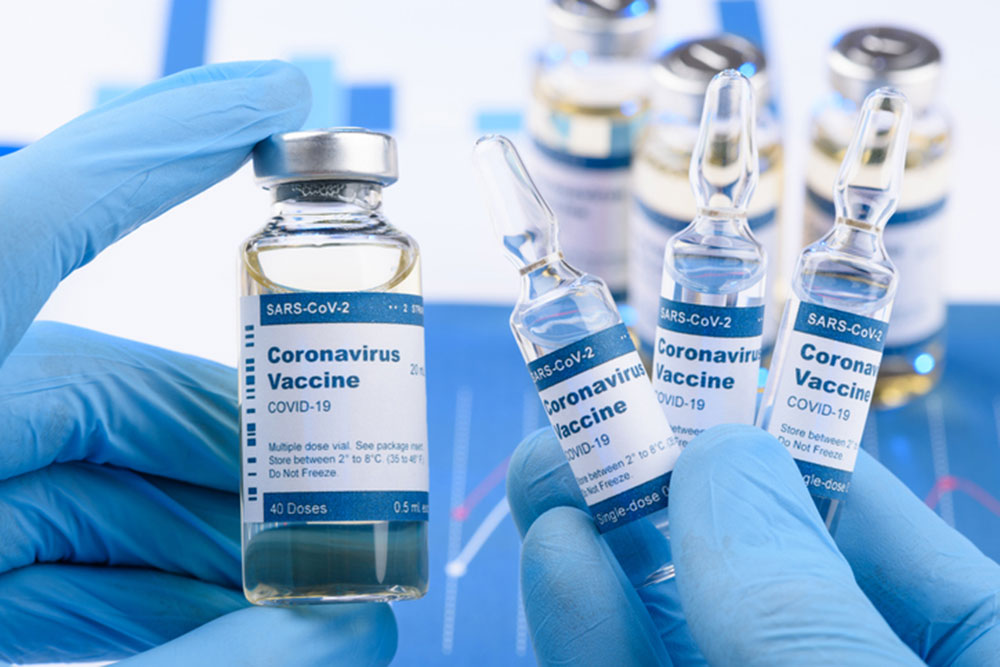
iStock
By Mary Carpenter
LAKE TAHOE medical editor P.D. had spent months digging her car out from under dozens of feet of snow when she flew to Italy—to travel and take a food tour in Puglia. A week into her trip, P.D., who is in her late 70s and fully vaccinated, developed a cough and tested positive for Covid. She then quarantined in her Bari hotel room for five days.
Covid is still out there—though symptoms are becoming less severe among people under age 65 and the number of weekly deaths due to Covid is declining. Last week the FDA announced plans to authorize a “spring shot” for older and immune-compromised adults—of the bivalent vaccine designed to protect against the omicron strain and its subvariants—to help counter waning immunity.
“An acknowledgement of the virus’s continuing risks to vulnerable people whose immunity might be sagging months after a previous inoculation” is how the New York Times describes the FDA’s plans “to authorize…without explicitly recommending [the additional dose], a stance that emphasizes the discretion of patients and their health providers.”
People over age 50 should be offered the chance to get a spring booster, Michael Osterholm, director of the University of Minnesota’s Center for Infection Disease Research and Policy, told STATnews. Osterholm noted that in the second half of 2022, 97% of people who died from Covid in this country were age 50 and older.
Having a spring shot can help bridge immunity gaps until late summer when a new reformulated vaccine is expected. In one study of patients deemed vulnerable to severe Covid, protection against infection declined from 61% in the first months after the original vaccine to only about 16% by the sixth month, according to Washington Post editorial writer Leana Wen —who noted in March that “for months the single-most common question I have received from readers has been about when they can get a second bivalent dose.”
Boosting brain health is another good reason to get the spring shot. “All types of vaccinations were associated with a trend toward reduced dementia risk,” according to a multicenter study by Chinese researchers. Comparing dementia risk in vaccinated versus unvaccinated populations, their analysis found vaccinations were associated with a 35% lower dementia risk.
Vaccinations against flu, pneumonia and shingles appear to offer protection against Alzheimer’s and Parkinson’s diseases, the most frequent forms of age-related neurodegeneration. According to neurologists Avram Bukhbinder, now at Mass General, and Paul Schultz at University of Texas, Houston—who looked at the effects of flu vaccination on a large nationwide sample of adults age 65 and older, “People who received at least one influenza vaccine were 40% less likely than their non-vaccinated peers to develop Alzheimer’s disease over the course of four years.”
Worries about symptoms of “long-haul” Covid—disabling fatigue, cognitive problems, pain and shortness of breath—may be the reason many eligible people get the “spring booster. Among four to seven million people who have had symptoms of Long Covid, 79% report having limitations to daily activities and 27% say those limitations are significant, according to the Kaiser Foundation website. The rate of Long Covid among people who have had the infection remains as high as 28%—although that is a decline from 35% in January 2023; and more than half of those who had Long Covid are no longer reporting symptoms.
Paxlovid—the antiviral treatment recommended for nonhospitalized adults and some pediatric patients with Covid who are deemed at high risk of disease progression—appears to help both to prevent Long Covid and to treat the long-term symptoms, according to TIME magazine. And in recent research, the diabetes drug Metformin appeared to stop the SARS-CoV-2 virus from replicating, explains University of Minnesota medical school researcher Carolyn Bramante—which may help prevent severe disease as well as long-term complications of Covid. The possibility of innate immunity to Covid—the apparent resistance of some people to infection despite known exposure to the virus—is the focus of the U.S.-led Covid Human Genetic Effort. After research failed to support early theories linking Covid-resistance to blood type, the search is now on for an inherited mutation in the cellular receptors or enzymes needed for the virus to gain entry to the cells. Another explanation could be a mutation in a gene involved in the immune response to infection, as with genetic mutations that bestow resistance to other infections like HIV and norovirus, the so-called winter vomiting bug.
After P.D. of Lake Tahoe managed to avoid Covid infection over three years of the pandemic, she thought she might have some kind of innate resistance and began to relax precautions, such as masking. All that changed with the Italian experience—and hearing about that convinced me to be even more vigilant. For whatever reason I have managed to avoid Covid infection to date, I think the spring shot cannot come soon enough—with high hopes that it will boost my resistance to the virus and help me avoid the dreaded Long Covid and in the process even benefit my brain.
—Mary Carpenter keep us updated on the continuing risks of Covid 19.

Hi, Mary,
Just went to my pharmacy asking for a bivalent booster but was told since I’d already had the bivalent last august there was no recommended booster for which I was eligible.
I just had COVID and rebound COVID, and that was the first time I have had it. COVID certainly is not over. Your information about the impact of all inoculations on dementia is very interesting and important also. Thank you, Mary.
Thank you, I think we are getting a bit lax about masks but I will check this week if the spring booster is available here. I’ve had Covid once and that was enough!!